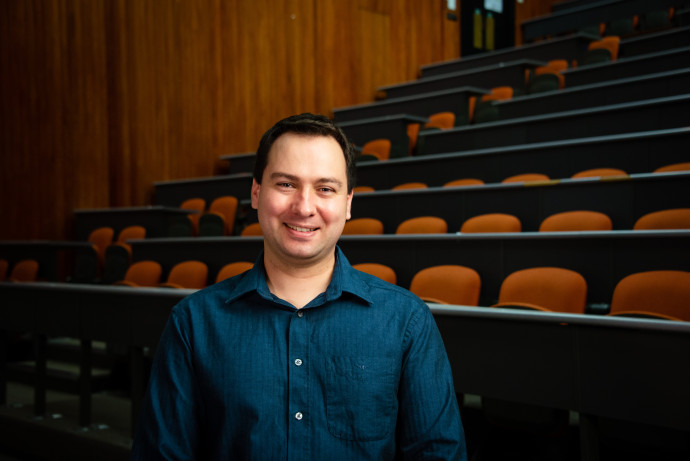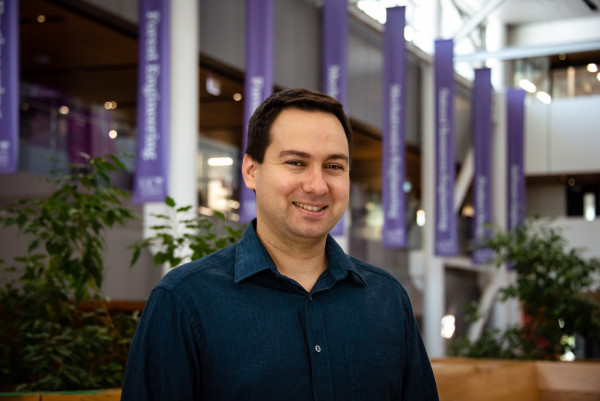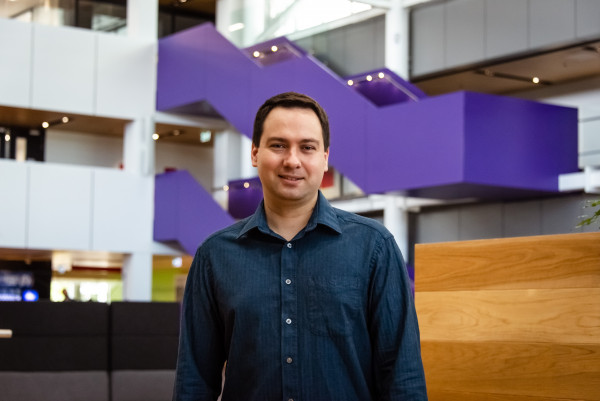Dr James Hewett

Following his academic dream, James Hewett is applying his research from geothermal heat exchangers and lava flows to tackling cardiovascular disease, thanks to Whitinga funding.
Q. Tell us about your research.
My research is focused on blood clots, specifically deep vein thrombosis which we might have in our legs. If blood clots form and then detach, it can lead to heart attack or stroke, and these are a form of cardiovascular disease. My research is in fluid mechanics, looking at the development and growth of blood clots. In understanding their formation and dynamics in more detail, we can characterise the blood clots to determine if a patient may have a dangerous or less dangerous blood clot, and hopefully lead to better clinical outcomes.
Q. What got you started in your research?
For me, heading to the University of Canterbury for a degree in Mechanical Engineering was a natural choice. My dad also completed Mechanical Engineering at Canterbury, and my grandad studied geology there too. The final-year undergraduate courses in biofluids, aerodynamics, and thermo-fluids interested me most, so continuing my studies in fluid mechanics was another natural choice. I was fortunate to get a doctoral scholarship from Canterbury, so I could choose my topic. I studied the build-up of silica scaling on pipes in geothermal heat exchangers.
We have very few post-doctoral positions in New Zealand, so after finishing my PhD, I did some short-term contracts to stay on at the University while I applied for funding. I applied to the Rutherford Foundation, and for a Marsden Fast-Start, but these were unsuccessful, as often is the case. I kept trying, and then received a post-doctoral position within a Marsden grant, focused on determining how quickly lava flows disseminate from volcanos. In the end, I managed to secure one of the MBIE Science Whitinga Fellowships.

Q. How did Covid impact on your research?
When lockdown hit, I was working on the lava flow research and teaching computational engineering as well. We had to transition to working from home, which wasn’t too bad for my research as I could still use my numerical modelling and software. But for teaching, instead of being in the lecture theatre, we had to adapt to online, which was tricky. Lectures took longer to prepare, and it was hard to gauge if the students were following or understanding. We’re still recovering I think.
Our team also missed out on some valuable field work as we couldn’t travel overseas. We were studying volcanic events that only happen every few years, in particular locations. There were a couple of eruptions during those Covid years, one on Mount Etna, Italy, and another in Iceland. Both would have been perfect to get real data for lava flows in the field, so this was a major setback. We had to rely on third party data or from our collaborators, which is not the same as when you have full control over the sensors and data sets.
Q. What difference has your Whitinga Fellowship made to you?
This funding has enabled me to pursue my own research, and to be lead investigator. I can close the loop on my PhD studies too, as my Whitinga research has an interesting connection to that work.
In my PhD, I worked on silica scaling in geothermal heat exchangers, so this is pipe flow. Our blood vessels are also nice pipes, and we have this atherosclerotic plaque that builds up over time, and this is quite analogous to silica scaling in geothermal systems. The plaque build-up that hardens arteries can cause a whole lot of other trouble, I’m looking forward to continuing on this journey, and the opportunity to make a difference.

Q. Has receiving the Fellowship helped you in other ways?
Thanks to the Fellowship, I’ve been able to connect with other organisations and funding bodies within New Zealand, particularly the new Centre of Research Excellence, Healthy Hearts for Aotearoa New Zealand. Their focus is on cardiovascular diseases, particularly within the Māori and Pacific Island people. This is a big issue in New Zealand and abroad, and has a lot of established research.
By engaging and collaborating with this group, I’ve been fortunate to form networks and links with the community and clinicians. This will help me ensure that my more theoretical modelling analysis can be applied and connected to real clinical outputs. I’m really hopeful that with this collaboration, my research will translate through to real clinical outcomes, and essentially at the end of the day, save lives.
